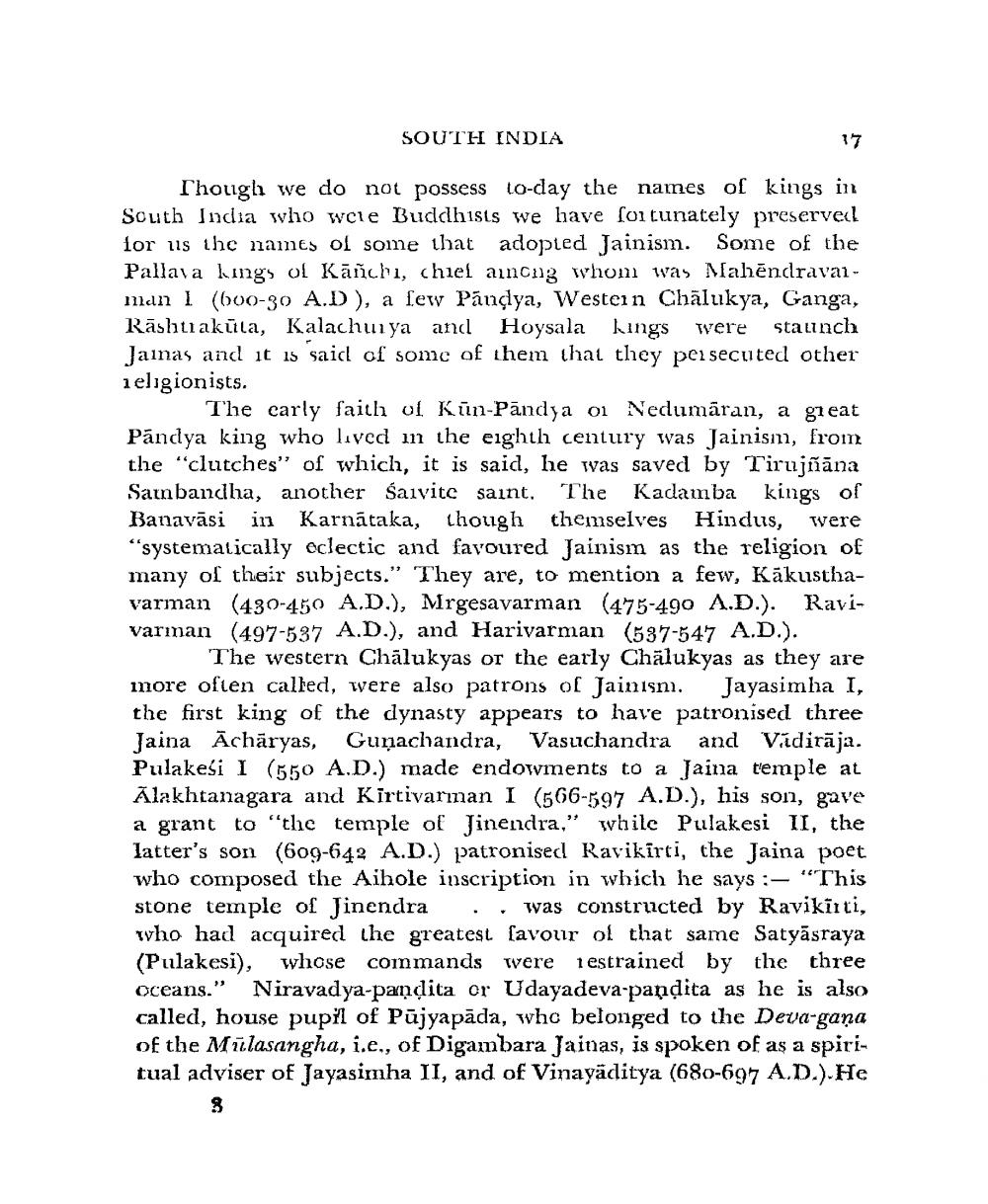________________
SOUTH INDIA
Though we do not possess to-day the names of kings in South India who wcie Buddhists we have fortunately preserved ior is the names of some that adopted Jainism. Some of the Pallava kings of Kānchi, chiel ainong whom was Mahēndravaiman I (600-30 A.D), a few Pánsya, Western Chālukya, Ganga, Rāshti akūla, Kalachuya and Hoysala hings were staunch Jainas and it is said of somc of them that they persecuted other i eligionists.
The carly faith of Kan-Pandya i Nedumāran, a great Pandya king who lived in the eighth century was Jainism, froin the "clutches" of which, it is said, he was saved by Tirujñāna Samnbandha, another saivite saint. The Kadamba kings of Banavāsi in Karnataka, though themselves Hindus, were “systematically eclectic and favoured Jainism as the religion of many of their subjects.” They are, to mention a few, Kākusthavarman (430-450 A.D.), Mrgesavarman (475-490 A.D.). Ravivarman (497-537 A.D.), and Harivarman (537-547 A.D.).
The western Chalukyas or the early Chalukyas as they are inore often called, were also patrons of Jainism. Jayasimha I, the first king of the dynasty appears to have patronised three Jaina Achāryas, Gunachandra, Vasuchandra and Vidirāja. Pulakesi I (550 A.D.) made endowments to a Jaina temple at Alakhtanagara and Kirtivarınan I (566-597 A.D.), his son, gave a grant to "the temple of Jinendra," while Pulakesi II, the latter's son (609-642 A.D.) patronised Ravikirti, the Jaina poet who composed the Aihole inscription in which he says : - "This stone temple of Jinendra .. was constructed by Ravikīti, who had acquired the greatest favour of that same Satyasraya (Pulakesi), whose commands were restrained by the three oceans." Niravadya-paņdita or Udayadeva-pandita as he is also called, house pupil of Pūjyapāda, who belonged to the Deva-gana of the Milasangha, i.e., of Digambara Jainas, is spoken of as a spiritual adviser of Jayasimha II, and of Vinayaditya (680-697 A.D.). He




